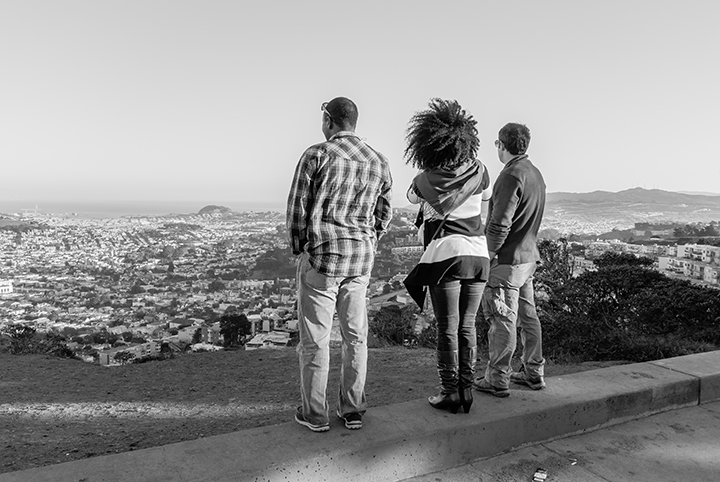
NPR's All Things Considered began a series this week on young people born between 1980 and 2000, "the millennials". One surprising statistic NPR uncovered was that in the very near future, millennials will make up 40% of the electorate within the U.S. That fact is surprising because for decades we've been reading how "boomers", those born just after WWII, were having fewer and fewer babies. In consequence, school districts were being downsized, and a significant proportion of white people began worrying about losing majority status to blacks, hispanics, and asians. Hence, the current preoccupation among conservatives with staving off immigration, suppressing votes, ending access to abortion, dismantling government programs that transfer wealth, and demonizing educational practices that fail to propagate notions of white exceptionalism. As it happens, though, those now entering adulthood, the millennials, are very much less panicked than their conservative parents about skin color, religion, sexual orientation, or whether someone else may have a bigger house, slicker suit of clothes, or more decadent car. By this writer's experience, and I have a son within that group, millennials are, instead, more concerned with how they'll make financial ends meet this month, manage the amount of stress they'll experience, and avoid creating strife in the world around them. They, in fact, have less a vision for their own, or our collective future, than a desire not to make things worse than they already are. While their parents came of age in a world with limitless horizons, they see a world whose horizons are closing in, perhaps on the verge of shutting down altogether. While their parents felt themselves endowed with power to change things, millennials are humbled and full of doubt that anything but futzing with what is right in front of them will make a difference in any substantial way to anything at all. In thinking back, what is it that infused boomers with a sense they could, if they tried, change things? Perhaps it began with all those "how we won the war" or "weathered the great depression" stories heard from parents and grandparents. Convinced of their own exceptionalism, a budding sense of collective invincibility was further reinforced during school with every pep rally, and compounded again with every winning touch down or break for the net. Later, feelings of power and strength grew still more with the communal singing of anti-war folk songs and the head pounding beat and squeal of guitars during massive live rock concerts. Such group experiences helped boomers feel and expect a surge of boundless power coursing through their bodies. It was intoxicating. And, it was without contradiction, or even cautioning temperance. But now think back to what millennials have experienced. They've taken a look at what their parents have pointed to with desire to change and seen that it really hasn't changed. In fact, in many way, it's gotten worse. They've gone to pep rallies and "big games" too, But they've smiled upon them as quaint, of a by-gone era. And they've gone to concerts. But not to sing along or madly dance in the aisles, instead to veg out on reverberant subtleties and to enquire of each other how remarkably different their individual experiences were. In doing so, they have come to realize there is no external common reality or set of circumstances that is exactly right for everyone. That only with the vague inexactness of language can we begin to appreciate the unique analytical and imaginative gifts we each have to offer in interpreting the experiences we all share. From their point of view, even if we did act together, or in harmonious concert, the consequence would only be something different, not necessarily something "better". Whatever might result could even be "worse". Perhaps, they have concluded, it is better to just "make do" with whatever has been left before us. The thing is, though, millennials are still young. Most have not yet entered full maturity. Developmentally, their points of view will likely change, as will their priorities and their sense of time slipping away. It is not a foregone conclusion they will never feel the need to act politically en mass. My personal guess is that, at some point, each millennial will unavoidably come to the conclusion that "now is the time to act". In their own individual ways, they will begin to sense that if they, we, don't act now, something special about life around us will be lost forever. And I believe, within each and every one of them, they will somehow find courage, conviction, wisdom, and strength to act. Because most millennials demonstratively care deeply and appreciatively for each other's welfare, there is little doubt we will all be better off for their efforts. |
• Posted: Oct 13, 2014 00:24:01
• Comments Welcome
• Vote CoolPhotoblogs
• Purchase a Print
• Share
Thursday, October 31st, 2013 San Francisco CA USA |